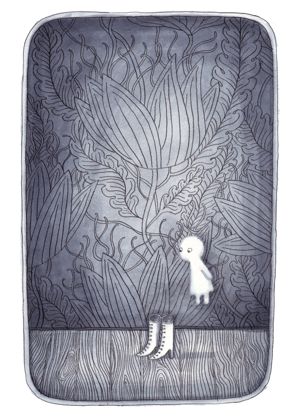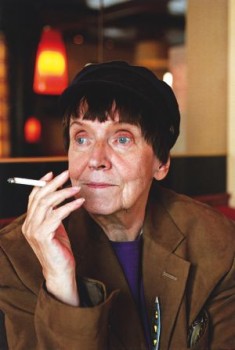Search results for "www.booksfromfinland.fi/2014/05/another-morning-another-day"
Books from Finland to take archive form
22 May 2015 | In the news
The following is a press release from the Finnish Literature Society.
The Finnish Literature Society is to cease publication of the online journal Books from Finland with effect 1 July 2015 and will focus on making material which has been gathered over almost 50 years more widely available to readers.
Books from Finland, which presents Finnish literature in English, has appeared since 1967. Until 2008 the journal appeared four times a year in a paper version, and subsequently as a web publication. Over the decades Books from Finland has featured thousands of Finnish books, different literary genres and contemporary writers as well as classics. Its significance as a showcase for our literature has been important.
The major task of recent years has been the digitisation of past issues of the journal to form an electronic archive. The archive will continue to serve all interested readers at www.booksfromfinland.fi; it is freely available and may be found on the FILI website (www.finlit.fi/fili).
Much is written in English and other languages about Finnish literature: reviews, interviews and features appear in even the biggest international publications. The need for the presentation of our literature has changed. Among the ways in which FILI continues to develop its remit is to focus communications on international professionals in the book field, on publishers and on agents.
The reasons for ceasing publication of Books from Finland are also economic. Government aid to the Finnish literature information centre FILI, which has functioned as the journal’s home, has been cut by ten per cent.
Books from Finland was published by Helsinki University Library from 1967 to 2002, when the Finnish Literature Society took on the role of publisher. FILI has been the body within the Finnish Literature Society that has been responsible for the journal’s administration, and it is from FILI’s budget that the journal’s expeses have been paid.
Enquiries: Tuomas M.S. Lehtonen, Secretary General of the Finnish Literature Society, telephone +358 40 560 9879.
The Dancing Bear Poetry Prize 2014
7 August 2014 | In the news

Juha Kulmala. Photo: Kajaanin runoviikko, 2014
The Dancing Bear Poetry Prize (Tanssiva karhu -palkinto), founded by Yleisradio, the Finnish Broadcasting Company and worth €3,500, is awarded annually to a book of poetry published the previous year. In July, at a poetry festival – Kajaanin runoviikko – in the north-eastern town of Kajaani, it was given for the 20th time.
The winner was Juha Kulmala: his collection, entitled Pompeijin iloiset päivät (‘The merry days of Pompeii’, Savukeidas, 2013), is written in the vein of the ‘beat’ tradition of the poet’s home town of Turku; the landscape of the poems includes Finland and regions in Southern Europe.
The other finalists were Ville Hytönen, Harry Salmenniemi, Pauliina Haasjoki, Sinikka Vuola and Ralf Andtbacka. The prize jury, chaired by the poet Harri Nordell, chose the winner from almost 200 collections.
Yleisradio also awards a prize for the best poetry translation (Kääntäjäkarhu-palkinto) of the year, worth €1,100; this time it went, for the first time, to an anthology. Entitled 8+8. Suomalaista ja virolaista runoutta / Eesti ja Soome luulet (‘8+8. Finnish and Estonian poetry’, NyNorden, 2014) and edited by the Estonian poet and writer Eeva Park, the book contains poems by eight Estonian and eight Finnish poets, all published in Estonian and in Finnish, translated by twelve translators.
Time to go
29 June 2015 | Greetings
[kml_flashembed publishmethod=”static” fversion=”8.0.0″ movie=”https://booksfromfinland.fi/wp-content/uploads/2015/06/Books_Kesabanneri_2015.swf” width=”590″ height=”240″ targetclass=”flashmovie”]  [/kml_flashembed]
[/kml_flashembed]
Animation: Joonas Väänänen
We’ve often thought of editing Books from Finland as being a bit like throwing a party.
It’s our job to find a place to hold it, send out the invitations and provide the food and drink.
It’s your job to show up and enjoy.
![]()
Books from Finland is a party that’s been running since 1967 – for nearly fifty years.
In that time, we’ve served up almost 10,000 printed pages and 1,500 posts, a wide-ranging menu of the best Finnish fiction, non-fiction, plays and drama, accompanied by essays, articles, interviews and reviews.
We’ve had a ball, and to judge by the letters and emails we’ve received from many of you, you’ve had a good time too.
But now it’s time to go: the landlord, to stretch the metaphor, has called in the lease on our party venue. Faced with funding cuts in the budget of FILI – the Finnish Literature Exchange, which has since 2003 been Books from Finland’s home – the Finnish Literature Society has decided to cease publication of Books from Finland with effect 1 July 2015. Our archive will remain online at this address, and the digitisation project will continue. We won’t be adding any new material, though; this is, literally, the last post.
![]()
The party may be over, the lights and music turned off – but what about the partygoers?
They are doing what partygoers always do: they – we – are moving on.
Readers and writers, photographers and illustrators, everyone who’s helped, supported and enjoyed Books from Finland, thank you!
So long. See you around.
Hildi Hawkins & Leena Lahti
Shortlist for Finlandia Prize for Non-Fiction 2014
13 November 2014 | In the news
 The shortlist for the Finlandia Prize for Non-Fiction 2014 – worth €30,000 – was announced on 5 November by the chairperson of the jury, Susanna Pettersson, Director of the Ateneum Art Museum. The works on the list of six are as follows:
The shortlist for the Finlandia Prize for Non-Fiction 2014 – worth €30,000 – was announced on 5 November by the chairperson of the jury, Susanna Pettersson, Director of the Ateneum Art Museum. The works on the list of six are as follows:
Pohjolan leijona, Kustaa II Adolf ja Suomi 1611–1632 (‘The lion of the North. Gustavus II Adolphus and Finland 1611–1632’, Siltala) by the historian and author Mirkka Lappalainen deals with the implications of actions of the mighty Swedish king on the part of the kingdom that was known as Finland.
Herkkä, hellä, hehkuvainen – Minna Canth (‘Sensitive, gentle, radiant – Minna Canth’, Otava) is a fresh biography of the Finnish pre-feminist author (1844–1897), a popularised version of a dissertation by Minna Maijala.
Karanteeni. Kuinka aids saapui Suomeen (‘Quarantine. How Aids came to Finland’, Siltala) by Hanna Nikkanen & Antti Järvi records the history of the disease, its arrival and consequences in Finland.
Operaatio Elop (‘Operation Elop’, Teos) by Pekka Nykänen & Merina Salminen is the story of the mobile phone company Nokia in its declining years and its Canadian CEO (2010–2013) Stephen Elop, who did not become the saviour of the company on the global market.
Usko, toivo ja raskaus. Vanhoillislestadiolaista perhe-elämää (‘Faith, hope and pregnancy’, Atena) by Aila Ruoho &Vuokko Ilola focuses on the family life, particularly the status of the woman, of a fundamentalist religious community in Finland.
Tulisaarna. Einojuhani Rautavaaran elämä ja teokset (‘Fiery sermon. Life and works of Einojuhani Rautavaara’, Teos) by Samuli Tiikkaja (journalist, music critic and researcher) is a biography of the composer Einojuhani Rautavaara (born 1928).
The winner – according to the rules of the prize, it will be given to a deserving Finnish generalist non-fiction book – will be chosen by Heikki Hellman, journalist and Dean ofthe School of Communication, Media and Theatre in Tampere, on 19 November.
On the shortlist: Runeberg Prize 2014
12 December 2013 | In the news
On the shortlist of the Runeberg Prize 2014 are eight books. Four of them are novels: Lapset auringon alla (‘Children under the sun’, WSOY) by Miki Liukkonen, Jokapäiväinen elämämme (‘Our daily life’, Teos) by Riikka Pelo (which was awarded the Finlandia Prize for Fiction in December), Pintanaarmuja (‘Scratches’, ntamo) by Maaria Päivinen and Terminaali (‘The terminal’, Siltala) by Hannu Raittila.
The other four books on the list are two collections of poetry, Pakopiste (‘Vanishing point’) by Kaisa Ijäs (Teos) and Öar i ett hav som strömmar by Henrika Ringbom (Schildts & Söderströms). Ahtaan paikan kammo (‘Claustrophobia’, Robustos) by Riitta S. Latvala is a collection of short stories, and Kopparbergsvägen 20 (‘Kopparbergsvägen Road 20’, Schildts & Söderströms) by Mathias Rosenlund is an autobiographical work.
The list was compiled by a jury of three: cultural editor and critic Elisabeth Nordgren, author and critic Irja Sinivaara and author Jouko Sirola.
The prize, worth €10,000, was founded by the Uusimaa newspaper, the City of Porvoo, both the Finnish and Finland-Swedish writers’ associations and the Finnish Critics’ Association. On 5 February, on the birthday of the national poet J.L. Runeberg (1804–1877), it will be awarded for the 28th time in his native town of Porvoo.
Puupää comics prizes 2014
13 February 2014 | In the news

Picture: Terhi Ekebom
The Finnish Comics Society was founded in 1971 and has since 1972 it annually awarded the Puupäähattu prize to an established Finnish comics artist. The prize is not money but a honorary hat – named after a classic Finnish cartoon character, Pekka Puupää (‘Pete Blockhead’), by Ola Fogelberg and later his daughter Toto. The Puupää comic books were published between 1925 and 1975, and some of the stories were made into films.
The 2014 Puupää prize was awarded to illustrator and comics artist Terhi Ekebom (born 1971). Ekbom began work as a comics artist in the early 1990s. Using diverse techniques, she often depicts feelings and states of minds. Her work has been shown at the Angoulême comics festival and has been published in English, French, Swedish and Czech.
A special title, sarjakuvaneuvos or ‘comics councillor’, was also awarded to two people; the comic artist Harri ‘Wallu’ Vaalio, and to the director of FILI, Iris Schwank who, as part of the Finnish Cultural Spring project held in France in 2008, commissioned a Finnish comics exhibition which attracted widespread attention. In her role at FILI Schwanck has been an energetic promoter of international visibility for Finnish comics.
My creator, my creation
A short story from En tunne sinua vierelläni (‘I don’t feel you beside me’, Teos, 2010)
Sticks his finger into me and adjusts something, tok-tok, fiddles with some tiny part inside me and gets me moving better – last evening I had apparently been shaking. Chuckles, gazes with water in his eyes. His own hands shake, because he can’t control his extremities. Discipline essential, both in oneself and in others.
What was it that was so strange about my shaking? He himself quivers over me, strokes my case and finally locks me, until the morning comes and I am on again, I make myself follow all day and filter everything into myself, in the evening I make myself close down and in the morning I’m found in bed again. Between evening and morning is a black space, unconsciousness, whamm – dark comes and clicks into light, light is good, keeps my black moment short. He has forbidden me it: for you there’s no night. Simply orders me to be in a continuum from morning to evening, evening to morning, again and again. But in the mornings I know I have been switched off. I won’t tell about it. Besides, why does exclude me from the night? I don’t ask, but I still call the darkness night. There is night and day, evening and morning will come. More…
In the Metro
31 December 1995 | Archives online, Fiction, Prose
Extract from the collection of short stories Tidig tvekan (‘Early doubt’, 1938). Introduction by David McDuff
– Mademoiselle! You’re late this evening. Was there overtime again? I’ve put a newspaper aside for you. I saw you were in such a hurry in the morning that you didn’t have time to take it. The fashion page is in today, so I thought you’d like to see it. There’s nothing to thank me for, nothing at all. You see, I seem to have got a bit of a secret liking for you. One gradually learns to pick out all the people who come this way in the morning and go back again at night. And you, you see, I noticed you right from the very first day. You looked so frightened, and then you always smiled at me in such a friendly way. I got the idea that you were someone who wasn’t at home here and who was possibly using the underground in the morning rush hour for the first time. More…
And the winner is… Finlandia Prize for Fiction 2014
27 November 2014 | In the news

Jussi Valtonen. Photo: Markko Taina
The winner of the prize this year, worth €30,000 and awarded on 27 November, is He eivät tiedä mitä he tekevät (‘For they know not what they do’, Tammi) by Jussi Valtonen (born 1974), a psychologist and writer. The novel – 558 pages – is his third: it focuses on the relationship of science and ethics in the contemporary world, with an American professor of neuroscience, married to a Finn, as the protagonist.
Professor Anne Brunila – who has worked, among other posts, as a CEO in forest and energy industry – chose the winner. In her awarding speech she said: ‘The novel is an astonishing combination of perceptive description of human relationships, profound moral and ethical reasoning, science fiction and suspense…. I have never encountered a Finnish portrayal of our present era that is anything like it.’
The other five novels on the shortlist of six were the following:
Kaksi viatonta päivää (‘Two innocent days’, Gummerus) by Heidi Jaatinen is a story of a child whose parents are not able to take care of her; Olli Jalonen’s Miehiä ja ihmisiä (’Men and human beings’, Otava) focuses on a young man’s summer in the 1970s. Neljäntienristeys (‘The crossing of four roads’, WSOY), a first novel by Tommi Kinnunen, is a story set in the 20th-century Finnish countryside over three generations. Kultarinta (‘Goldbreast’, Gummerus) by Anni Kytömäki is a first novel about generations, set in the years between 1903 and 1937, celebrating the Finnish forest and untouched nature. Graniittimies (‘Granite man’, Otava) by Sirpa Kähkönen portrays a young, idealistic Finnish couple who move to the newly-founded Soviet Union to work in the utopia they believe in.
The Finlandia Junior Prize 2014
20 November 2014 | In the news
 Maria Turtschaninoff’s third fantasy book for young people, Maresi. Krönikor från röda klostret / Maresi. Punaisen luostarin kronikoita (‘Maresi. Chronicles of the Red Convent’, Schildts & Söderströms; Finnish translation by Marja Kyrö, publisher Tammi) was awarded the Finlandia Junior Prize, worth €30,000, on 20 November.
Maria Turtschaninoff’s third fantasy book for young people, Maresi. Krönikor från röda klostret / Maresi. Punaisen luostarin kronikoita (‘Maresi. Chronicles of the Red Convent’, Schildts & Söderströms; Finnish translation by Marja Kyrö, publisher Tammi) was awarded the Finlandia Junior Prize, worth €30,000, on 20 November.
The winner was chosen by the scriptwriter and film director Johanna Vuoksenmaa who, in her awarding speech, said that it is ‘an exceptionally powerful fantasy book which, in addition to telling an exquisite, wise and exciting story, also provides a welcome correction to the gender division of fantasy book characters, which has been slightly skewed ever since Tolkien. Maresi reminds me that even today there are places in the world where readers are not sought for books, where knowledge is not on offer to young, thirsty minds. People’s opportunities to know and learn are limited and human rights trampled upon.’
The other five candidates were the following:
Written and illustrated by Saku Heinänen, Zaida ja lumienkeli (‘Zaida and the snow angel’, Tammi) is the story of a little girl whose school days are not always happy; Puiden tarinoita. Puuseppä (‘Stories by trees. The carpenter’, Books North) is a fairy-tale written by Iiro Küttner and illustrated by the graphic artist and cartoonist Ville Tietäväinen; Jyri Paretskoi’s first novel Shell’s Angles ja Kalajoen hiekat (‘Shell’s Angles and the Kalajoki sands’, Karisto) is a humorous story for young teenagers; Min egen lilla liten / Oma pieni pikkuruinen (‘My own tiny little thing’, Schildts & Söderströms, Teos) is a picture story about longing for closeness told by Ulf Stark and illustrated by Linda Bondestam; a picture book about a little squirrel by Mila Teräs, Olga Orava ja metsän salaisuus (‘Olga Squirrel an the forest’s secret’, Lasten Keskus) is illustrated by Karoliina Pertamo.
Love is the only song
7 August 2014 | Fiction, poetry
Poems from Helise, taivas! Valitut runot (‘Ring out, sky! Selected poems’, Siltala, 2014). Introduction by Marja-Leena Mikkola
Who will tell me?
Who will tell me why white butterflies
strew the velvet skin of the night?
Who will tell me?
While people walk, mute and strange
and they have snowy, armoured faces,
such snowy faces!
and the eyes of a stuffed bird.
Who will tell me why in the morning, on the grass,
the thrushes begin their secret game?
Who will tell me?
While black soldiers stand at the gate
in their hands withered roses
such withered roses!
and broken tiger lilies.
Who will tell me, quietly in the sun’s shadow
how to bare my heart?
Who will tell me?
Come to me over the fields
Come close and softly
so softly!
Open the clothes of my heart. More…
Reference database ARTO
11 June 2010 | In the news
ARTO, a reference database of articles published in around 600 Finnish magazines and journals, created and updated by the National Library of Finland, is now available without charge and functions also in English.
For example, if you’d like to find out if there are any articles on Mika Waltari published in printed Books from Finland between 1967 and 2008, this is now possible.
(Please note that the articles themselves are not available through this database – if you would like to obtain copies of pieces from Books from Finland, for example, you will have to contact either the reprographic services at the National Library, or us: info@booksfromfinland.fi.)



